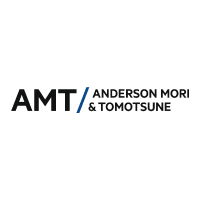

Vice president of legal department | ZOZO







Mutsumi Yasuda
Vice president of legal department | ZOZO
What are the most significant cases, projects, or transactions that you and your legal team have recently been involved in?
Over the past few years, our legal team has led a number of initiatives to enhance corporate governance and drive long-term enterprise value. These include transitioning to a company with an audit and supervisory committee, implementing a virtual only general shareholders meeting, overhauling the executive compensation system, improving board effectiveness, and increasing the ratio of female board members. Each measure was executed with strategic precision and contributed to building a stronger governance foundation. In addition, we provided legal support across several high-impact initiatives: For a major M&A involving a UK-based company,
We also supported a strategic partnership with a prestigious golf tour, focusing on contract execution and negotiation support to ensure legal robustness in a fast-moving global sports business context. Through these engagements, I believe we have demonstrated that the legal department is not merely a compliance function, but a true partner in enabling organization al transformation and supporting bold strategic initiatives.
How do you approach managing legal aspects during periods of instability or crisis to ensure the organisation’s resilience?
In times of uncertainty, corporate leaders are often faced with difficult and high -stakes decisions. That is precisely when legal should not only advise on what is “legally correct,” but also help the business figure out “how to move forward.” I see the role of legal during crises as a “thinking partner” who supports decision-making by organizing complexity. When multiple factors are at play, I work to structure the options by considering not only legal implications, but also stakeholder impact, reputational risk, and the feasibility of alternative paths—so that management can make fully informed and deliberate choices. What matters most is not pushing a single “right answer,” but carefully identifying all viable courses of action and conducting a thorough, balanced evaluation. Legal’s job is to enable the organization to reach the best possible decision—for both the business and society—under the given circumstances.
Have you had any experiences during your career that stand out as particularly unique or interesting?
One of the most unique experiences in my career was spending five years outside the legal department, working in a corporate investment division where I was deeply involved in strategic decision-making and organizational transformation. For example, at my previous company, I led the execution of domestic M&A deals, overseas investments, and the establishment of joint ventures. I was responsible for a wide range of tasks including project management, valuation, legal structuring, and contract negotiation. Additionally, I played a central role in designing the group’s overall management structure—leading the transition to a holding company model and building a governance framework to oversee nearly 100 subsidiaries. Through these experiences, I came to believe that legal functions should not be limited to identifying risks. Instead, I have been committed to building a legal tea m that integrates the perspectives and insights I gained from my investment experience—one that actively supports and drives strategic decision-making and contributes to corporate growth beyond the traditional boundaries of legal.
Based on your experiences in the past year, are there any trends in the legal or business world that you think other in-house lawyers should be mindful of?
Over the past year, I’ve observed two key trends that I believe are particularly important for in-house counsel to focus on. The first is the growing strategic role of the legal department in corporate management. Traditionally, legal teams were tasked primarily with compliance and risk mitigation. However, today’s legal departments are increasingly expected to contribute directly to critical business decisions—such as M&A, PMI, group restructuring, and ESG initiatives. It is no longer sufficient to simply determine what is “legally correct”; legal must help guide “what should be chosen” and “how to move forward.” This shift demands a more business-oriented, strategic lens from in-house lawyers. The second trend is the redefinition of collaboration between internal and externa l experts. With the rapid evolution of AI and increasing complexity in legal matters, no sing le team can solve every problem alone. External specialists have become indispensable. However, their roles are increasingly fragmented and specialized, focusing on deep knowledge within narrow domains. In contrast, in-house legal professionals are expected to cultivate breadth and integrative thinking. Their role is to detect early signs of multi-faceted issues, identify the right external expertise, and reconstruct those insights into actionable recommendations that align with business decision-making. In this emerging dynamic, in-house counsel are not merely consumers of external services—they are the starting point of problem-solving and the architects who connect insights across boundaries. The future of legal practice lies in this collaborative model: where internal teams identify and define the issue, external experts dig deep, and the internal team translates those findings into informed, strategic action.